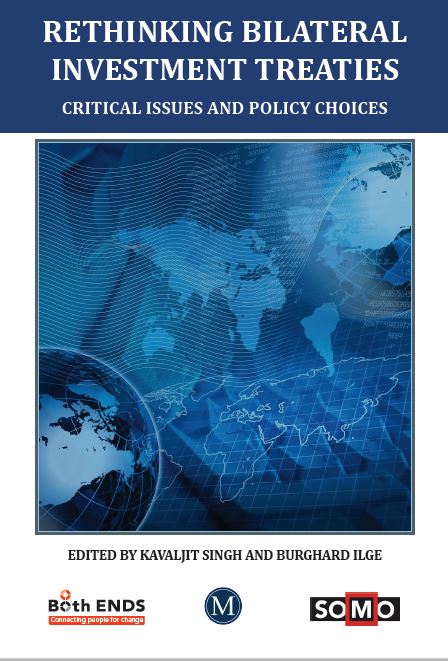
Dutch Bilateral Investment Treaties: A gateway to ‘treaty shopping’ by multinational corporations for investment protection
Multinational corporations (MNCs) investing abroad have been using Dutch bilateral investment treaties (BITs) to sue host country governments for over 100 billion dollars for alleged damages to the profitability of their investments.
This is one of the outcomes, described in the new SOMO report Dutch Bilateral Investment Treaties, that is launched today, which focuses on the unknown and opaque field of Dutch BITs and their legal impacts. In addition, the majority of the companies availing themselves of the generous investment protections offered by Dutch BITs are so-called ‘mailbox companies,’ companies with no employees on their payroll and no real economic activity in the Netherlands.
Dutch investment protection policy
It is a known fact that many transnational corporations choose the jurisdiction of the Netherlands as the base for their global trade and investment operations because of its favorable tax regime that facilitates corporate tax avoidance strategies. Les well known are the unexplored advantages of Dutch investment protection policy for Dutch based MNCs investing abroad. The Dutch bilateral investment treaty network is one of the most extensive in the world.
The report argues that current Dutch investment policies are used for treaty shopping, allowing for investor–state dispute settlement that pose a danger to policy space and the safeguarding of public goods and interests. This is not only highly problematic from a sustainable development perspective for Southern countries, but increasingly also for Northern states, as foreign investors, especially from emerging economies, are increasingly making their presence felt in Europe.
Treaty shopping
SOMO- researcher Roos van Os notes that the practice of treaty shopping increases the possibilities to take advantage of gaps in effective governance of multinational corporations:
“Contrary to recent recommendations of the United Nations, treaty havens such as the Netherlands are often averse to maintaining effective oversight on the extraterritorial operations of MNCs based in their jurisdiction. This increases the governance gap between needed worldwide oversight on multinationals and the stubborn reality.”
EU investment policy framework
The Lisbon Treaty, which came into effect in 2009, has brought foreign direct investment (FDI) under the exclusive competence of the EU. This requires the development of a new common investment policy framework that will in time incorporate the BITs of all EU Member States. The European Parliament has called on all parties to rebalance the rights and obligations of investors. However, leading EU investor states like the Netherlands disregard this call.Researcher Roeline Knottnerus is critical:
“Investment is seen by governments as a development tool. However, there is also growing recognition of the impacts that business activities, in particular those of powerful transnational investors, have on human rights and sustainable development. Coupled with the exponential growth of transnational economic activity since the 1990s, this calls for an urgent reassessment of the frameworks currently guiding the protection of international investment.”
Stop facilitate investment treaty shopping
SOMO recommends that the Netherlands cease to facilitate investment treaty shopping. Instead, the country must embrace a standard that counterbalances investor rights with the investor obligations, which are needed to ensure that foreign direct investment contributes to sustainable and equitable development.
Related content
-
Dutch Bilateral Investment Treaties Published on:
 Roos van OsPosted in category:Publication
Roos van OsPosted in category:Publication Roos van Os
Roos van Os
-
Rethinking bilateral investment treaties Published on:
 Roos van OsPosted in category:Publication
Roos van OsPosted in category:Publication Roos van Os
Roos van Os
-
 Rethinking Bilateral Investment Treaties – critical issues and policy choicesPosted in category:NewsPublished on:
Rethinking Bilateral Investment Treaties – critical issues and policy choicesPosted in category:NewsPublished on: -
 After South Africa, Indonesia takes a brave decision to terminate its Bilateral Investment Treaty with the NetherlandsPosted in category:NewsPublished on:
After South Africa, Indonesia takes a brave decision to terminate its Bilateral Investment Treaty with the NetherlandsPosted in category:NewsPublished on: -
BITs and a WTO Investment Framework Published on:
 Myriam Vander StichelePosted in category:Publication
Myriam Vander StichelePosted in category:Publication Myriam Vander Stichele
Myriam Vander Stichele

